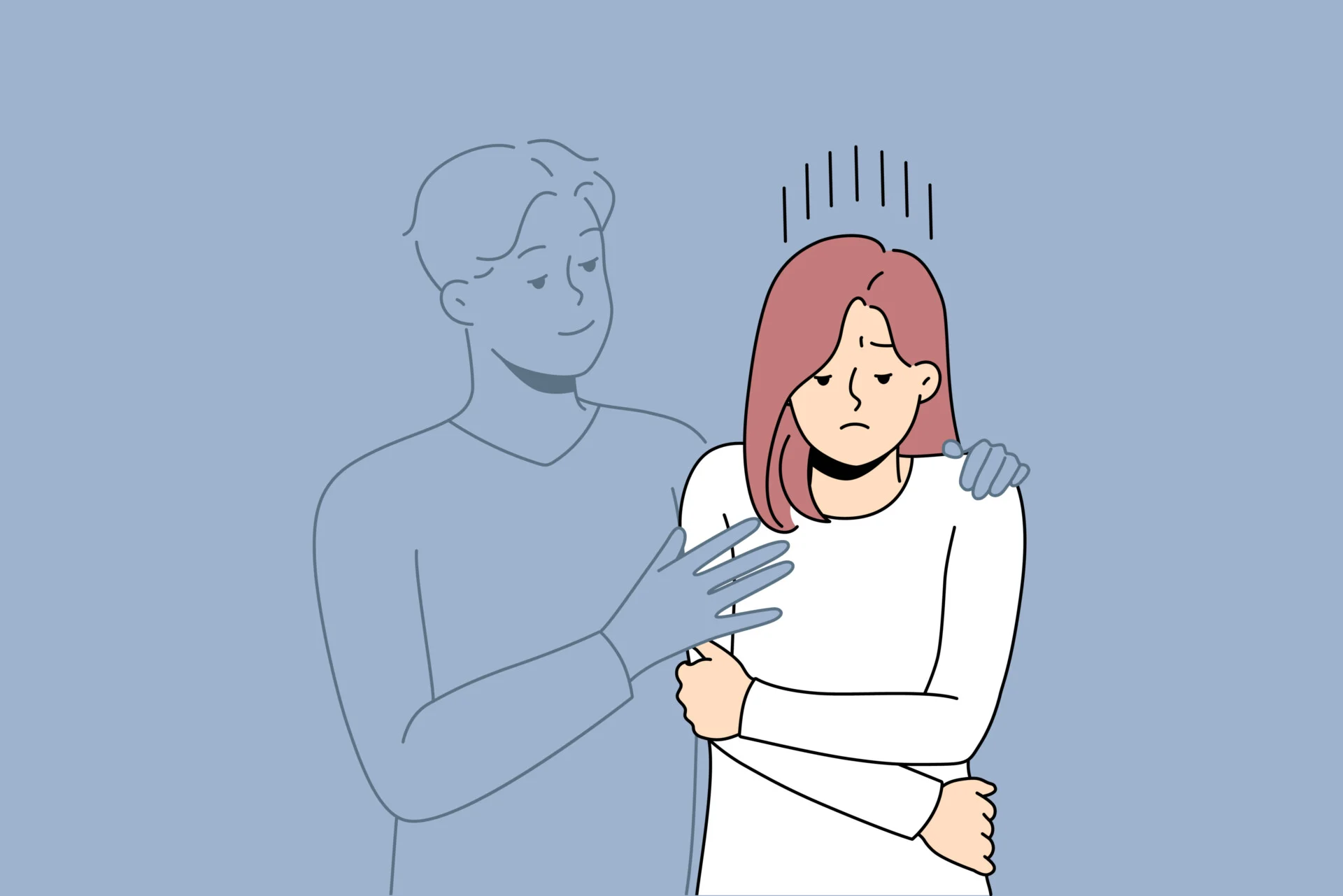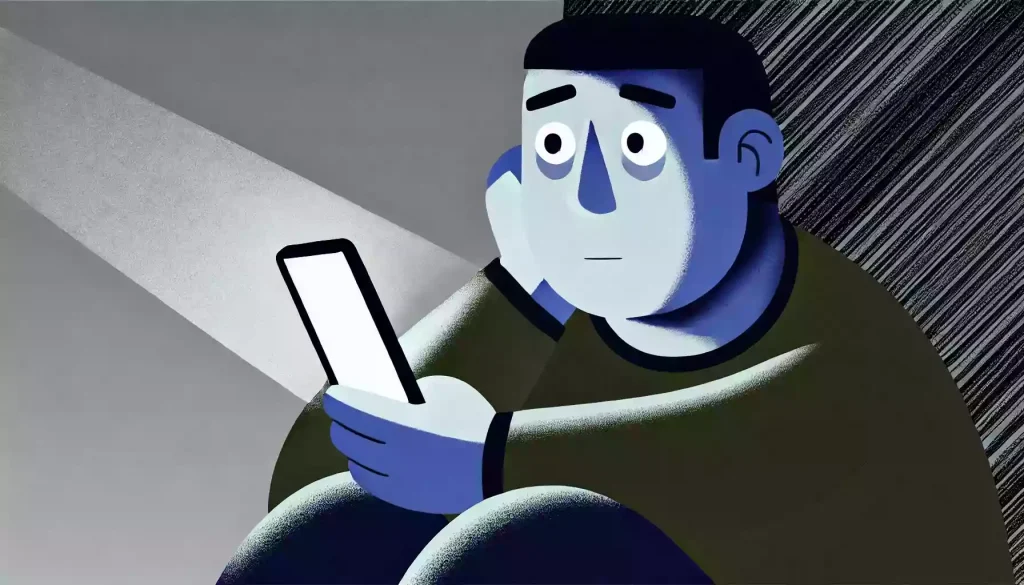If someone who ghosted you suddenly reappears in your messages acting like nothing happened, you’re not alone. This frustrating pattern happens so often that it has its own name: zombieing. Understanding why ghosters come back can help you decide whether they deserve your time and how to protect yourself from getting hurt again. Learning how to get over being ghosted is the first step, but understanding their motives is key. This guide breaks down the real reasons behind their return and gives you practical steps for responding.
What Does It Mean When a Ghoster Comes Back?
When a ghoster returns, it feels confusing. One minute they’re gone without a trace, and the next, they’re in your DMs with a casual “hey.” This reappearance, often called zombieing, is when someone who vanished comes back from the “dead.”
They might slide into your life weeks, months, or even years later. It often happens through a low-effort text, a random like on an old social media photo, or a surprise match on a dating app. It’s important to remember this is incredibly common. Their return is almost always a reflection of what’s happening in their life, not a sign that you were lacking anything.

The Difference Between Ghosting and Zombieing
Let’s get the terms straight. Ghosting is the initial act of disappearing. It’s cutting off all communication without any explanation, leaving you confused and hurt.
Zombieing is the sequel. It’s when that same person resurfaces, often acting as if no time has passed. A classic zombie move is to ignore their disappearance entirely, hoping you’ll do the same.
How Common Is It for Ghosters to Return?
It’s more common than you might think. For some, ghosting isn’t a one-time act but a recurring pattern of behavior. They might disappear and reappear multiple times with the same person or repeat the cycle across different relationships. This pattern points to their own issues with communication and emotional availability, not your value.
What Are the Selfish Reasons Ghosters Always Come Back?
Most of the time, a ghoster’s return is driven by their own needs. It’s rarely about a sudden realization of your worth and almost always about what they can get from you in that moment. Recognizing these self-serving motives is the first step to protecting your peace.
They’re Bored and Want Easy Attention
This is one of the most common reasons. When a ghoster is bored, lonely, or between other options, they might scroll through their contacts and send out low-effort messages to see who bites. That “what’s up” text probably isn’t just for you; it’s a net they’re casting for easy validation. Your reply is simply a cure for their temporary boredom.
They Need an Ego Boost or Validation
Sometimes, a ghoster’s ego is feeling a little bruised. Maybe they just got rejected by someone else or are feeling insecure. Reaching out to you is a quick way to check if you’re still interested. Your response, even a simple one, confirms they still have a hold on you, which gives their self-esteem a temporary lift. They aren’t necessarily interested in reconnecting; they just want to feel wanted.
They Want Benefits Without Commitment
This is a classic. They enjoyed the connection—whether it was emotional support, physical intimacy, or just having someone to talk to—but they didn’t want the responsibility of a real relationship. When they reappear, they’re often hoping to dip back into those benefits without offering any actual commitment. They want to keep you as a convenient option on their terms.
They Don’t Want You to Move On
Some people have a possessive streak. They may not want you, but they don’t want anyone else to have you either. If they see you looking happy on social media or hear you’re dating someone new, it can trigger a knee-jerk reaction. Their return isn’t about rekindling a romance; it’s about pulling you back into their orbit to make sure you’re still available to them.
Circumstantial Reasons Ghosters Reappear
Sometimes, a ghoster’s return is prompted by a change in their life. While these reasons might seem less malicious, they still revolve around their convenience and circumstances, not a newfound respect for your feelings.

Their Other Option Didn’t Work Out
This one stings, but it happens all the time. You were likely one of several options they were exploring. When their preferred choice fell through, they circled back to you. They never officially ended things because they wanted to keep you on the back burner. In this scenario, you weren’t their first choice—you were their safety net.
Something Reminded Them of You
It could be anything: a song on the radio, a post you made, or even just swiping past you on a dating app again. This spark of nostalgia might prompt them to reach out. However, a fleeting memory is very different from a genuine desire to reconnect. This type of contact is often impulsive and doesn’t signal a real change of heart.
They’re Going Through a Rough Patch
When people feel lonely, stressed, or are facing a personal crisis, they often seek comfort from sources that once made them feel good. They remember the support and happiness you provided and want to feel it again. The problem is that they’re using you as a temporary emotional bandage. Once their situation improves, they’re likely to disappear again.
When Ghosters Come Back for the Right Reasons
It’s not common, but it is possible for a ghoster to return with genuine intentions. True change is marked by accountability and consistent effort, not just words. Here are a few signs that their return might be sincere.
They’ve Done Personal Growth Work
Some people genuinely work on themselves. Through therapy, self-reflection, or significant life events, they may have become more self-aware and emotionally mature. A person who has truly grown will acknowledge their past behavior, offer a specific, heartfelt apology, and understand if you’re not ready to trust them. They won’t make vague excuses.
They Realized What They Lost
Time and distance can bring clarity. After dating others or having time to reflect, they might have realized that the connection you shared was special and meaningful. This isn’t just about missing you when they’re lonely; it’s about recognizing your specific value. A key indicator here is genuine remorse and a clear explanation of what they now understand.
Life Circumstances Changed
Sometimes, there are legitimate reasons for a sudden disappearance—a family crisis, a severe mental health struggle, or an overwhelming work situation. If they return with a specific, credible explanation and can show that those circumstances have truly changed, it might be worth hearing them out. The key is whether their reason seems genuine and not just a convenient excuse.
Red Flags That Show You Shouldn’t Respond
Your emotional safety comes first. If a ghoster returns, it’s crucial to look for warning signs that engaging with them will only lead to more pain. Here are some clear red flags.

They Won’t Explain or Apologize for Ghosting
This is the biggest red flag. If they slide into your DMs acting like nothing happened or offer a flimsy excuse like “I got busy,” they are showing you they don’t respect you or your feelings. A lack of accountability means they haven’t changed and will almost certainly repeat the behavior.
Their Message Is Generic or Low-Effort
A message like “hey,” “wyd,” or a fire emoji on your story is not a sincere attempt to reconnect. It’s a low-investment feeler sent to see if you’re still accessible. It suggests they might be sending the same message to multiple people. You deserve more than a half-hearted breadcrumb.
They’ve Ghosted and Returned Multiple Times Before
Past behavior is the best predictor of future behavior. If someone has a history of disappearing and reappearing, believe the pattern. Each time you let them back in, you’re teaching them that this treatment is acceptable. Don’t expect the fifth time to be different from the first four.
They Display Narcissistic Tendencies
Watch out for traits like love bombing (intense, over-the-top affection at the beginning) followed by sudden withdrawal. Other narcissistic behaviors include an inability to take responsibility, a profound lack of empathy, and making everything about their own feelings. These are deep-seated personality patterns that are unlikely to change.
How to Respond When a Ghoster Comes Back
You are in complete control of how you respond—or if you respond at all. Your decision should center on your self-respect and well-being. Here are a few ways to handle it.
When Ignoring Is the Best Option
You owe them nothing. No explanation, no courtesy text, nothing. Deleting their message and blocking their number is a powerful way of saying, “I value my peace more than your validation.” Ignoring them sends a clear message that their access to you is revoked. Especially if it was a case of ghosting after first date, you owe them absolutely nothing.
How to Get Closure If You Need It
If their return has stirred up old feelings and you need answers to move on, it’s okay to seek them. However, you must set the terms. You can respond with something direct:
- “I was hurt when you disappeared without an explanation. I’m open to hearing why it happened, but I’m not interested in picking things back up.”
This approach allows you to get clarity without reopening the door to another relationship.
Setting Strict Boundaries for a Second Chance
If you believe their apology is sincere and feel the connection is worth salvaging, proceed with extreme caution. For those healing from how to deal with being ghosted in a long term relationship, setting firm boundaries is not just an option—it’s essential. Insist on:
- A real apology and a full explanation.
- Demonstrated, consistent change in their behavior. Words are not enough.
- Taking things incredibly slowly. They need to earn back your trust, which takes time.
What to Say to Protect Your Self-Respect
Here are a few scripts you can adapt to protect your energy and communicate your worth:
- To call it out directly: “To be honest, I was surprised to hear from you. The way you disappeared was confusing and hurtful, and I’m not interested in going through that again.”
- To show you’ve moved on: “I appreciate you reaching out, but I’ve moved on and am happy with where my life is now. I wish you the best.”
- To politely decline: “Thanks for thinking of me, but I’m not interested in reconnecting.”
Moving Forward After Being Ghosted
Whether they come back or not, the ultimate goal is to heal and move forward with your standards held high. This experience is a lesson, not a reflection of your worth.

Understanding Ghosting Wasn’t About You
Repeat this until you believe it: Ghosting is a reflection of the ghoster’s character, not a verdict on your value. It speaks to their lack of courage, poor communication skills, and emotional immaturity. You deserve someone who has the decency to communicate openly and respectfully.
Recognizing Your Worth and Setting Standards
Use this experience as data. You now know what you won’t tolerate. This is an opportunity to clarify your standards for future relationships. You deserve consistency, respect, and clear communication. Decide that you will walk away from anyone who fails to provide that.
When to Give Someone a Second Chance
A second chance should be an exception, not a rule. Before you even consider it, ask yourself:
- Did they offer a genuine, specific apology?
- Have they demonstrated real change over time?
- Do I truly feel this connection is worth the risk?
- What does my gut tell me?
Balance cautious optimism with healthy skepticism. Your peace of mind is the priority.
Ultimately, understanding why ghosters come back is less about them and more about you. It’s about recognizing patterns, trusting your intuition, and knowing you deserve better than someone who walks out of your life only to reappear when it’s convenient. For more thoughts on building healthy relationships and self-worth, feel free to browse the resources at www.notonetype.org.


Có thể bạn quan tâm
How to Be a Better Wife: Practical Ways to Strengthen Your Marriage
Being a wife is a role that evolves. Some days it feels natural, and other...
Dec
Essential Advice for Building a Strong, Lasting Relationship
Building a relationship that lasts takes more than just love—it requires consistent effort, open communication,...
Dec
How to Deal with an Angry Partner: Effective Strategies for a Healthier Relationship
Dealing with a partner who frequently expresses anger can feel overwhelming. It’s emotionally draining. Whether...
Dec
How to Deal with Relationship Stress: 7 Proven Ways
Relationship stress affects nearly every couple at some point, causing tension, communication breakdowns, and emotional...
Dec
How to Rebuild Trust in a Relationship: A Step-by-Step Guide
Rebuilding trust after it’s been broken can feel like trying to glue a shattered vase...
Dec
How to Fix a Broken Marriage: 12 Proven Steps to Reconnect
Fixing a broken marriage is possible when both partners commit to the process, even when...
Dec